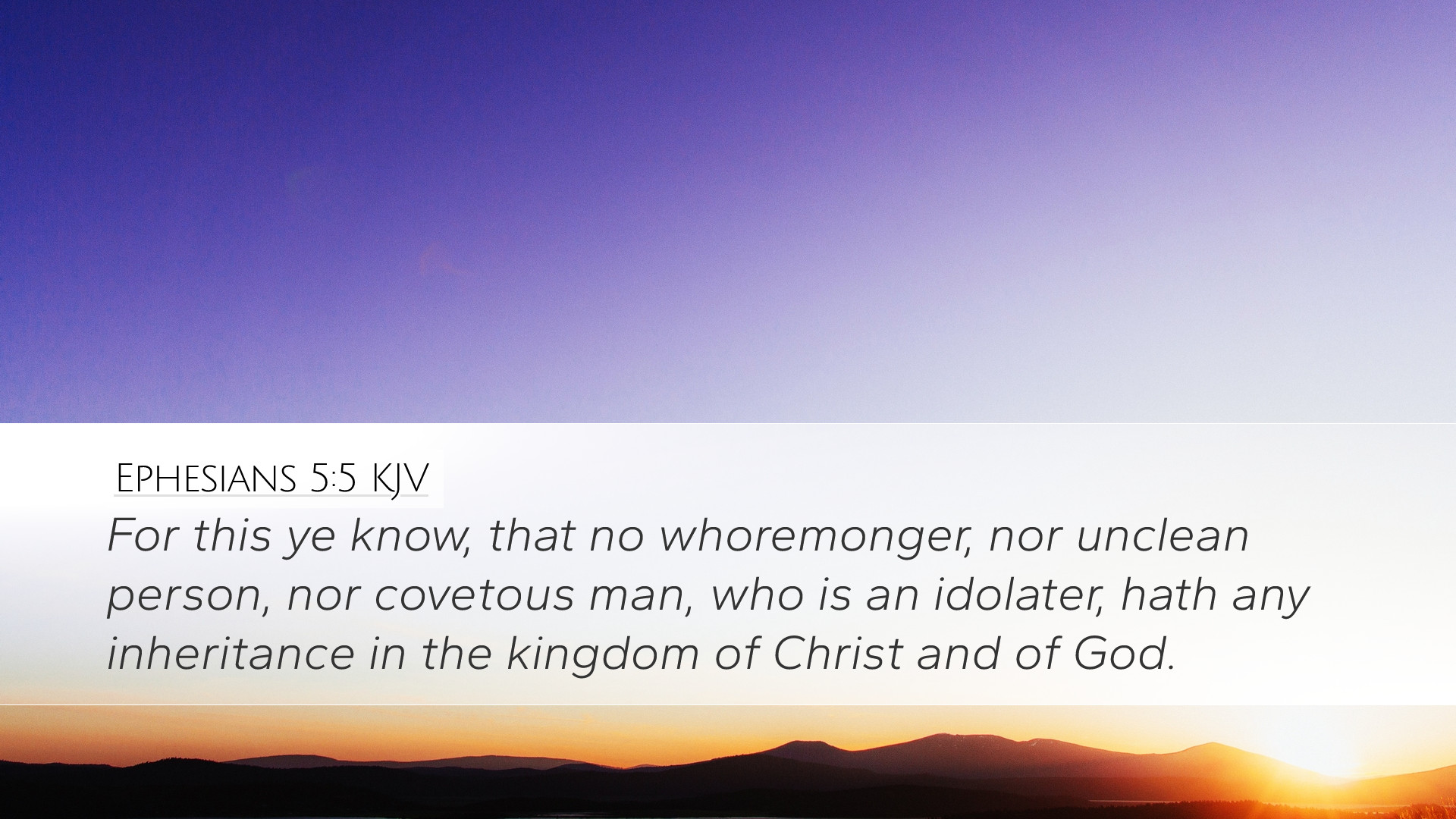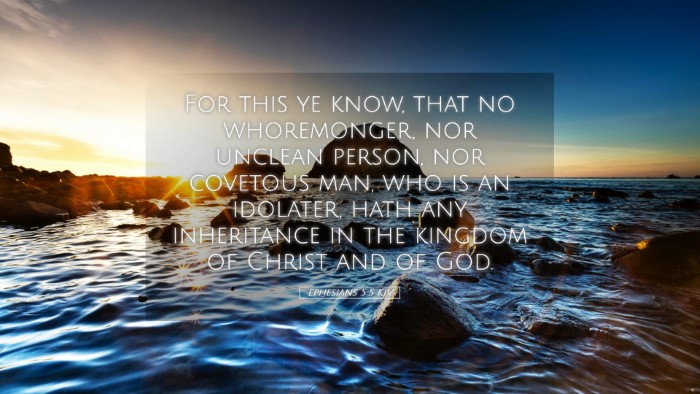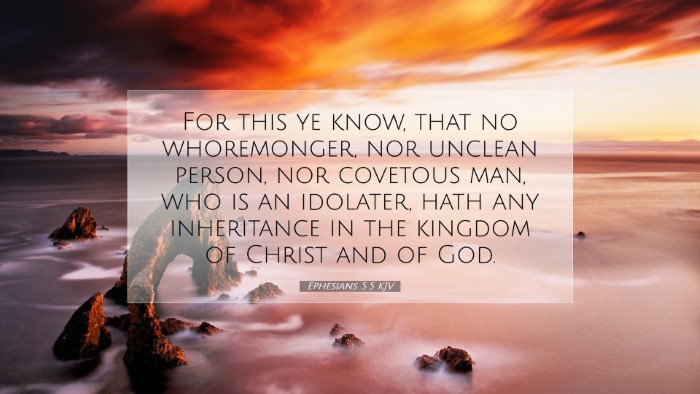Ephesians 5:5 Commentary
Ephesians 5:5 (KJV): "For this ye know, that no whoremonger, nor unclean person, nor covetous man, who is an idolater, hath any inheritance in the kingdom of Christ and of God."
Introduction
This verse forms a solemn part of Paul’s admonition to the Church at Ephesus, emphasizing the necessity of moral purity and the dire consequences of sinful living. As esteemed Biblical commentators, such as Matthew Henry, Albert Barnes, and Adam Clarke, elaborate, the implications of this scripture extend into the realms of ethics, doctrine, and community living.
Understanding the Terms
The verse presents a list of sinful behaviors that are explicitly condemned. Each term signifies a specific form of immorality:
- Whoremonger: Referring to those who indulge in sexual immorality, particularly promiscuity or prostitution. Henry emphasizes how this reflects a broader indulgence in lust and debauchery.
- Unclean person: This denotes not only moral uncleanness but also ritual impurity. Clarke points out that this can extend to thoughts and actions that are defiled.
- Covetous man: A person who craves material possessions or others’ goods excessively. Barnes indicates that such greed becomes idolatrous when it takes the place of God in a person's heart.
- Idolater: This refers to the act of worshipping anything other than God Himself, often manifested through sinful behaviors mentioned.
The Kingdom of Christ and of God
Paul's assertion that those engaging in these sinful practices "hath any inheritance in the kingdom of Christ and of God" carries profound theological implications. As Henry points out, the kingdom signifies a realm of spiritual authority and blessings promised to believers. Thus, the absence of an inheritance signifies exclusion from spiritual benefits and communal belonging.
Moral Implications
This exhortation addresses the moral compass of a believer’s life. Paul stresses that such behaviors are incompatible with the Christian faith. According to Clarke, there is a transformation expected in the life of a believer, calling them to live differently than their previous life of sin. Barnes adds that the stipulation, “no whoremonger” reflects the holiness God demands from His people.
Pastoral Applications
For pastors and church leaders, this verse serves as an urgent reminder to teach and uphold moral standards within the church. The serious warning against certain behaviors urges a holistic pastoral approach:
- Preaching Against Sin: Encouragement for congregations to reject behaviors that lead to spiritual death.
- Promoting Holiness: Calling believers to strive for personal holiness and understanding its implications in their relationship with God.
- Community Accountability: Fostering a community that holds one another accountable in love when drift postured toward these sins.
Theological Reflections
In a broader doctrinal perspective, Ephesians 5:5 not only identifies categories of sin but also connects them to the concept of idolatry. Barnes draws attention to how the covetous person demonstrates a heart posture akin to idol worship. This idolatry is not only a rejection of God's authority but also indicates misplaced desires that can jeopardize one's standing before God.
Faith and Practice
Believers are urged to reflect on their behaviors and motivations in relation to this text. Clarke notes the importance of examining the heart, ensuring that one does not harbor hidden sins that can keep them from an inheritance in the Kingdom. Self-examination leads to repentance, thereby revitalizing one's relationship with Christ.
Conclusion
Ephesians 5:5 challenges believers to reflect upon their lives, urging a separation from sin. The comprehensive insights offered by Henry, Barnes, and Clarke remind us that the call to holiness is vital in our walk with God and our testimony to the world. As we navigate the complexities of faith, this scripture stands as a beacon of truth, warning against complacency and inviting radical transformation within the community of faith.


